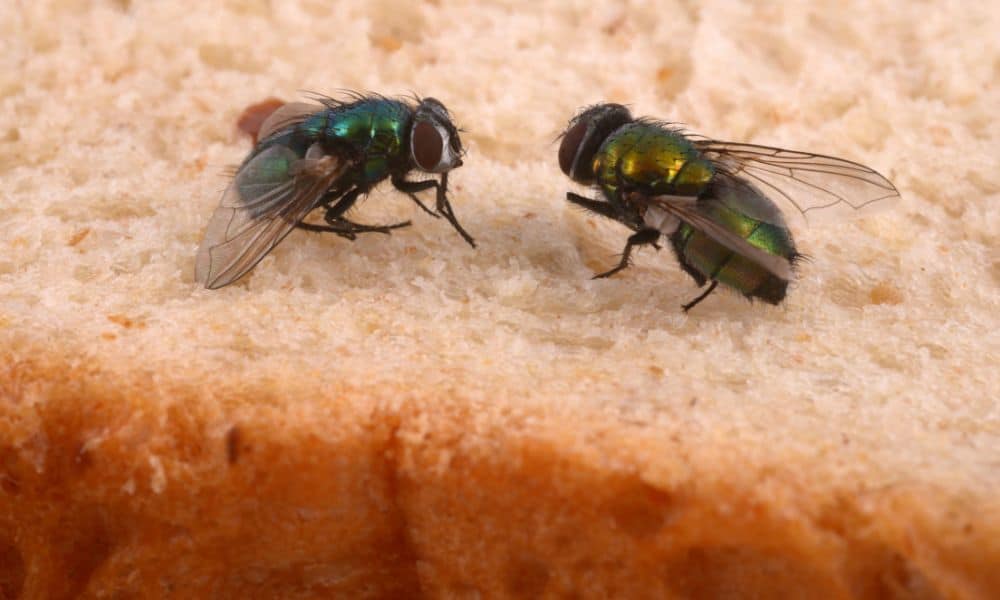Flies aren’t known as the fussiest of household pests. So if you have a fly problem in your home, finding something that will send them packing can be difficult.
The good news is, there are natural ways to repel flies. And one possible option is to try to find an odor they dislike. But what smell do flies hate?
That’s what we’re here to find out! We’re going to check out the scientific evidence behind different suggestions. And we’ll bust one common myth too.
Ready? Let’s get started!
What Smell Do Flies Hate?
1. Essential oils

Search online for natural methods of pest control, and you’ll frequently find essential oils being recommended. But do they work for flies?
Well, there’s not a huge amount of scientific evidence to support their use as a fly repellent. But one study carried out in 2016 did have some promising results.
That looked at a particular kind of fruit fly, the spotted wing drosophila – or Drosophila suzukii, to give it its scientific name. Of course, this isn’t the same species as the house fly, so we can’t assume the results are transferrable. But the study did give some interesting pointers.
So what kinds of essential oils does the science tell us might be worth a shot?
2. Peppermint oil
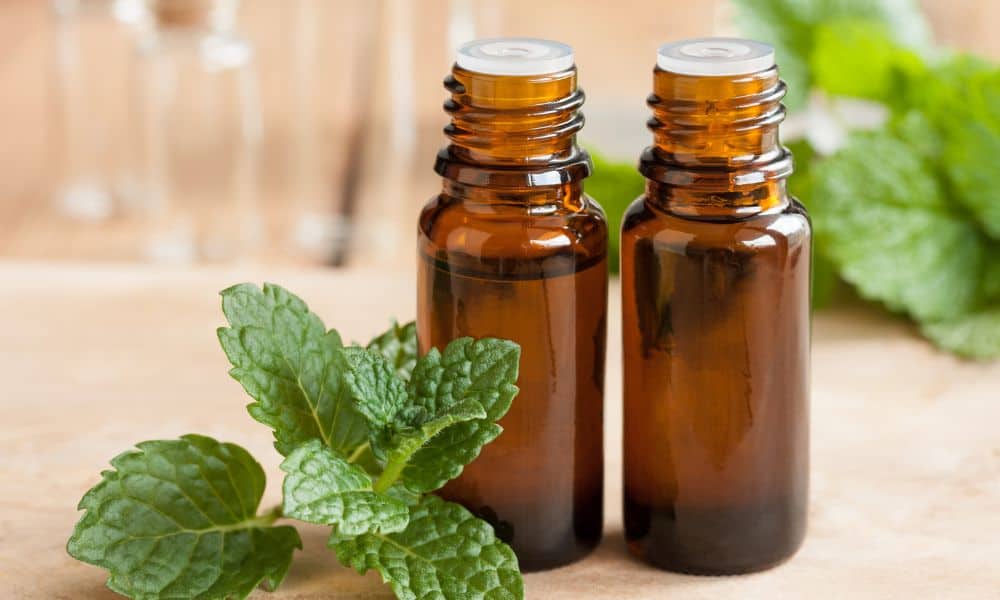
Of all the oils tested by the scientists, peppermint oil was the most effective. It repelled every single fly from the area where it was applied. And it continued to work just as well for six days after application.
The study used neat peppermint oil. You could try smearing some on door and window frames to keep the flies away.
Alternatively, you could try adding some to an oil burner. Or some people recommend mixing a few drops with water and spraying it around your home.
There’s no guarantee this will work – but the limited scientific evidence available to date suggests it’s worth a shot.
But don’t use this if you have cats! Peppermint oil is highly toxic to felines, whether it’s ingested or comes into contact with their skin. It can be harmful to dogs too, though the effects are less severe.
3. Thyme oil
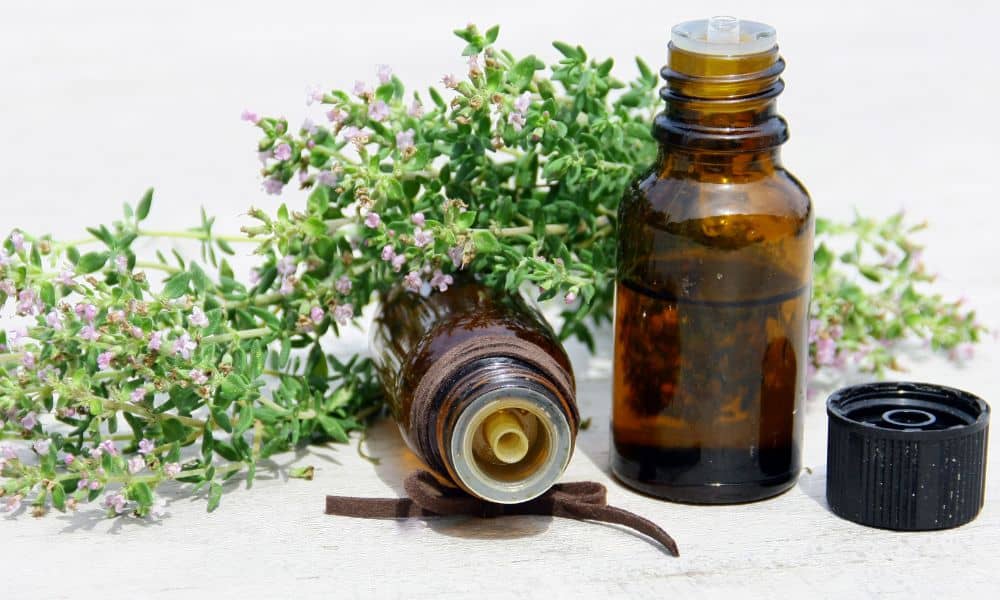
Thyme oil didn’t just repel bugs in the experiment, it actually killed many of the male flies. And the flies of both sexes that didn’t die stayed away from the treated areas.
As with the peppermint oil, the study used neat thyme oil. So if you want to give this a shot in your home, you’ll need to identify the areas flies are attracted to and treat those.
An oil burner or a mixture of oil and water in a spray bottle could be worth a try too. But it’s important to note that this wasn’t the method used in the study.
4. Basil

Another study carried out in 2021 looked at the effect of the herb basil in repelling flies. And in this case the scientists looked at Musca domestica – that’s the house fly, to you and me.
The study concluded that basil oil did have a repellent effect on female house flies. It didn’t deter them completely, but they tended to avoid food if there was any basil oil on it. And they were less likely to lay eggs anywhere the oil was present.
Those eggs that did come into contact with the basil oil were usually killed.
So it looks as if basil oil really can be effective in controlling flies in your home. Note, though, that it was the essential oil that was tested here.
That’s not the same as planting basil around your home or using it as a pot plant. There’s no evidence that fresh basil works in the same way. But on the plus side, try that approach you’ll at least have plenty of tasty leaves to go on your pizza or mozzarella salad!
5. Cinnamon

In 2019, scientists tested whether cinnamon essential oil could be effective against house flies. It looked at how it worked against both young flies – larvae – and adults. And the results were very promising.
78% of fly larvae that came into contact with cinnamon oil died. Used on its own, the smell didn’t seem to repel adult house flies, but it was fatal if they touched it.
It’s important to recognize, though, that we’re not talking about cinnamon sticks or powdered cinnamon here.
The study looked specifically at essential oil made with distilled water and 5% cinnamon. For the essential oil placed on the flies, the concentration of cinnamon was reduced to 0.6%.
6. Vetiver

The same 2019 study that found cinnamon essential oil could be used against flies also looked at vetiver. Vetiver essential oil was tested at concentrations of 5% and 0.6%, and the unfortunate test subjects were once again house flies.
Vetiver was even more effective at killing fly larvae. 84% of the larvae that came into contact with it expired. Just like cinnamon, vetiver killed adult flies on contact. But the smell alone did little or nothing to repel them.
So where does that leave home remedies? Well, it doesn’t seem worth getting out your oil burner for cinnamon or vetiver. The smell just didn’t bother the flies.
But if you can smear these essential oils in strategic locations, they will kill flies if they touch them.
7. Other options
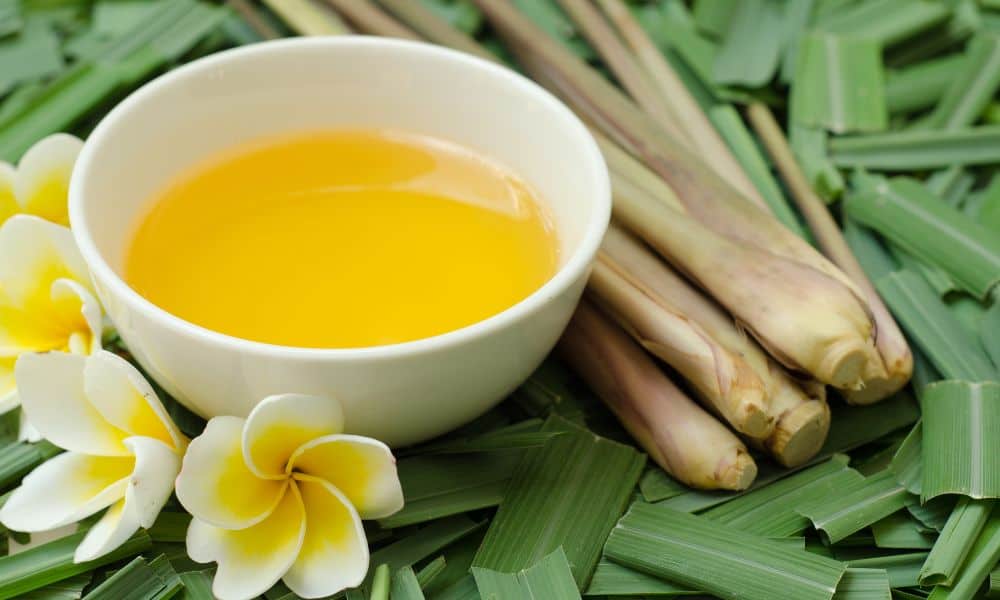
A number of other kinds of essential oils tested in the 2016 study showed good results in repelling flies. While peppermint and thyme were top of the shop, geranium and citronella also proved effective.
Rosemary and eucalyptus oils worked well for the first 24 hours. But after that, male flies were no longer repelled by them. So if you use these oils, be prepared to reapply them regularly.
There was a third category of oils that worked just as well on male flies after 24 hours. But they were only effective in repelling about 80 per cent of them. Eastern white cedar, white spruce, balsam fir and ginger all fell into this group.
In every case, the oils tested in the study were used neat. But if you have a large area to keep free of flies, taking the same approach could prove very expensive.
Heating the oil in an oil burner may be a more cost-effective option – but there’s no guarantee it will work. Mixing it with water and spraying the solution is another possible method. But again, that hasn’t been tested in laboratory conditions.
Citronella is available in a range of different forms for insect control. Candles, coils and sprays are all pretty easy to get your hands on.
Long shots
Unfortunately, while you’ll see plenty of other suggestions for smells flies apparently hate, there’s limited evidence to support their repellent properties. Here we take a look at what we know about them – and what we don’t.
8. Cloves
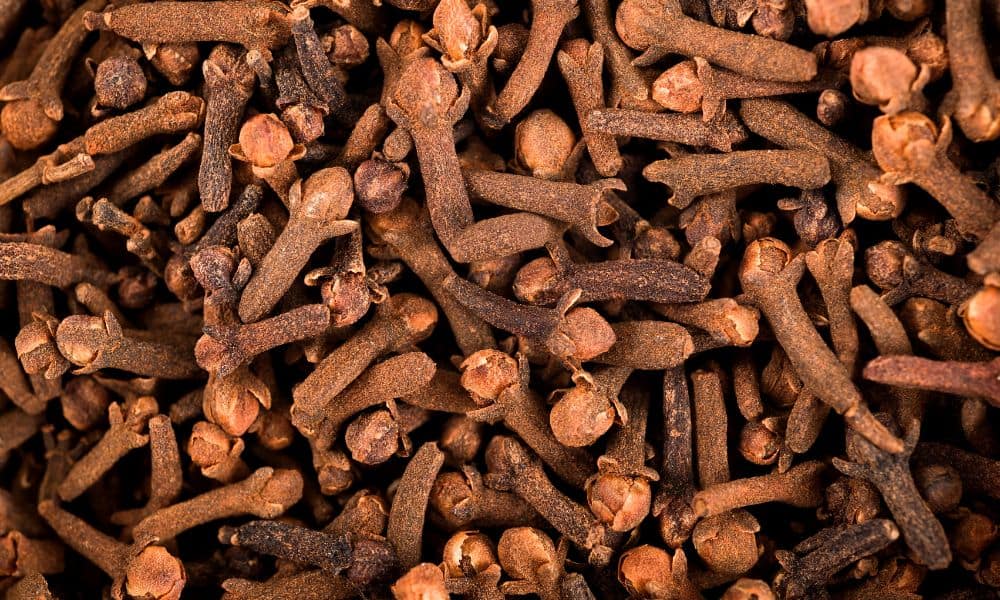
Clove oil has been used as a mosquito repellent in India for many years, and at the right concentration, it’s very effective. That’s probably why it often makes an appearance on lists of natural fly repellents.
Mosquitos and flies, however, are different, and there’s no evidence that clove oil works for the latter. It’s also worth noting that clove oil has to be very strong to effectively repel mosquitos – about 25 per cent. Get any of it on your skin, and it will burn – so it needs to be used with care.
And it’s no good substituting cloves for clove oil, even if it’s mozzies you want to get rid of. We’ve seen articles suggesting studding limes with cloves as an insect repellent. They might be a talking point, but sadly the clove component is simply not strong enough to have any practical effect.
9. Lavender

Lavender is a wonderful plant with a whole host of therapeutic properties. And there is some evidence that it can be a useful weapon against fly eggs and larvae.
The same study that found that cinnamon and vetiver were good fly repellents also looked at lavender.
And while it wasn’t as effective, it did kill some of the fly eggs and larvae it came into contact with. The figure was just under 40% – so more young flies survived their lavender encounter than didn’t. And unfortunately, the smell didn’t put off the adults.
One to avoid
Finally, there’s one remedy you’ll often see touted for flies that we’d advise you to steer clear of. In this case, it’s not just that there’s no evidence that it’s a repellent. There’s actually evidence that it can attract flies to your home!
Step forward…
10. Apple cider vinegar
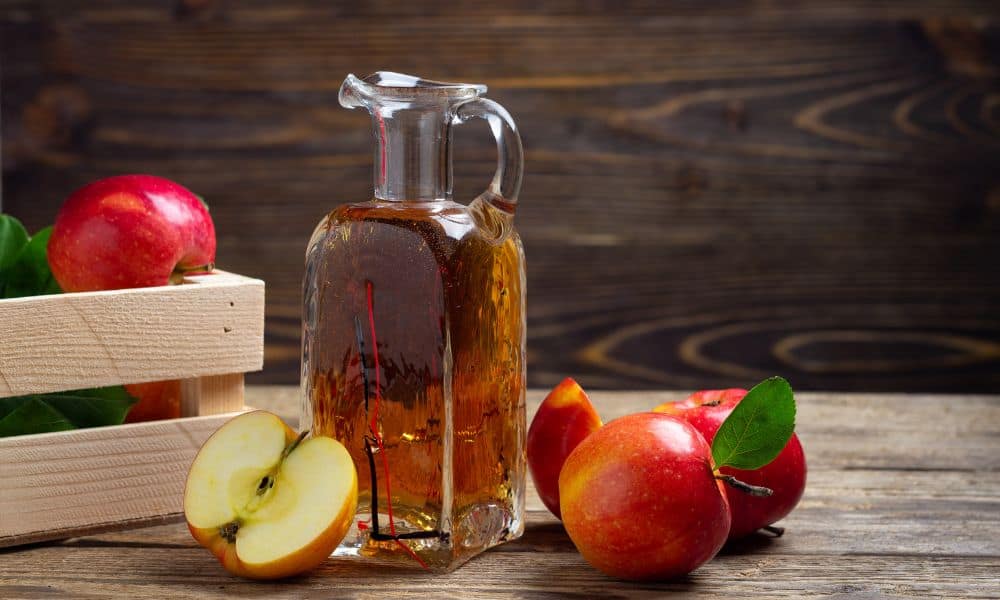
Apple cider vinegar is often touted as a miracle cure for pretty much anything! But while it certainly has myriad applications as a cleaning product, there is zero evidence that it works to repel flies.
Even worse, there is some evidence that it can attract flies. A 2013 study found that Drosophila – fruit flies – were attracted to apple cider vinegar. And it drew both male and female flies.
So ignore those articles telling you to boil vinegar or place pots of it around your home to get rid of flies! It could well do more harm than good.
Natural fly repellents
So what smell do flies hate? Well, that’s not an easy question to answer.
They certainly don’t like coming into contact with some essential oils. But that’s not quite the same as saying they don’t like the smell. And in the case of cinnamon and vetiver, while the oil itself is toxic to flies, the smell doesn’t seem to bother them at all.
The scientific evidence isn’t particularly clear so far. But if you don’t have cats or dogs to worry about, peppermint oil is a good bet. And if it doesn’t work for the flies, your home will still smell delicious!
